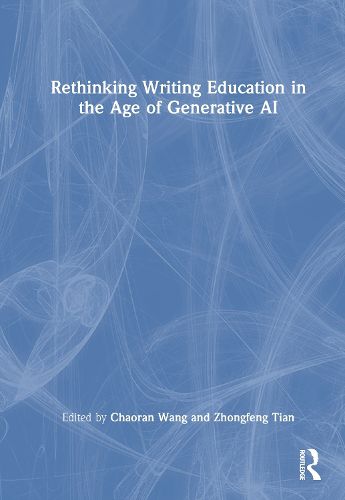Readings Newsletter
Become a Readings Member to make your shopping experience even easier.
Sign in or sign up for free!
You’re not far away from qualifying for FREE standard shipping within Australia
You’ve qualified for FREE standard shipping within Australia
The cart is loading…






Bringing together leading scholars and practitioners, Rethinking Writing Education in the Age of Generative AI offers a timely exploration of pressing issues in writing pedagogies within an increasingly AI-mediated educational landscape.
From conceptual and empirical work to theory-guided praxis, the book situates the challenges we face today within the historical evolution of writing education and our evolving relationship with AI technologies. Covering a range of contexts such as L2/multilingual writing, first-year writing, writing centers, and writing program administration and faculty development, the book examines various AI-informed writing pedagogies and practices. Drawing on interdisciplinary perspectives from writing studies, education, and applied linguistics, the book bridges theory and practice to address critical questions of innovation, ethics, and equity in AI-supported teaching.
This book is essential for writing educators and researchers looking to leverage AIs to facilitate the teaching and learning of writing in critical and transformative ways.
$9.00 standard shipping within Australia
FREE standard shipping within Australia for orders over $100.00
Express & International shipping calculated at checkout
Bringing together leading scholars and practitioners, Rethinking Writing Education in the Age of Generative AI offers a timely exploration of pressing issues in writing pedagogies within an increasingly AI-mediated educational landscape.
From conceptual and empirical work to theory-guided praxis, the book situates the challenges we face today within the historical evolution of writing education and our evolving relationship with AI technologies. Covering a range of contexts such as L2/multilingual writing, first-year writing, writing centers, and writing program administration and faculty development, the book examines various AI-informed writing pedagogies and practices. Drawing on interdisciplinary perspectives from writing studies, education, and applied linguistics, the book bridges theory and practice to address critical questions of innovation, ethics, and equity in AI-supported teaching.
This book is essential for writing educators and researchers looking to leverage AIs to facilitate the teaching and learning of writing in critical and transformative ways.